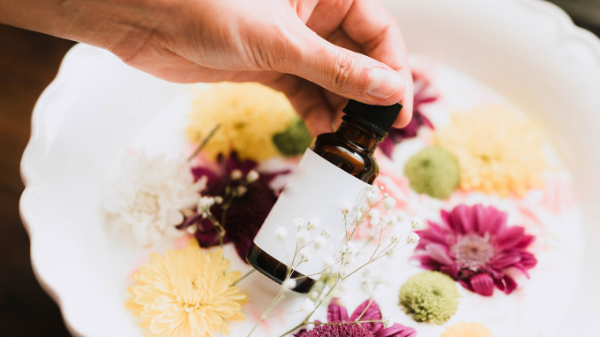Essential oils are plant extracts used in aromatherapy and in providing numerous benefits that boost health and well-being. They are a plant-based alternative to medicine which roots back to ancient Egypt and China. A wide range of oils is available, each with its own unique aroma and characteristics. However, not all oils are made with the same purpose, and some might pose adverse effects if not applied correctly.
Here are some ways to use essential oils and safety points to note:
Aromatically
Diffusing aromatic oils with a diffuser is a popular way to use essential oils. Alternatively, they can be inhaled directly from a bottle or dropping a small dose onto the palm of the hand, then cupping the face to breathe in its aroma can also deliver the same benefits.
Essential oils that relieve stress and anxiety include lavender, sandalwood, and chamomile.
Topically
Alternatively, applying therapeutic oils directly to the skin also offers great relief to physical pains. Depending on the ailment, it can be combined with a variety of carrier oils and applied to different areas of the body to relieve pain.
Examples of carrier oils are coconut, avocado, and grapeseed.
In shower products
Some people prefer to drop a small quantity on the shower wall or into their hair products as a creative way to infuse aromatic therapy into their self-care routine.
Examples of essential oils for muscle pains and cramps are lavender, clary sage, and ginger.
Safety concerns
Not all essential oils are made in the same manner and for the same purpose. People are easily mistaken that these oils are natural and therefore safe to use in the same way as medicine. However, some oils can cause side effects if not applied properly. For instance, citrus oils are photosensitive and can cause allergic reactions when exposed to the sun. Similarly, there are essential oils that are too potent and concentrated that it can cause irritation to the skin if not combined with therapeutic-grade carrier oils such as those from coconuts or avocadoes.
There are assumptions that because essential oils are plant-based, they are safe to ingest, but this is not always the case. When ingested in large quantities, oils can cause vomiting, seizures, and kidney damage. It is imperative to consider family pets and young children when using these therapeutic oils since not all of them are safe for pets or young children.
Examples of essential oils that are not advisable to use around pets:
- tea tree
- cinnamon
- citrus
- pine
Examples of essential oils that are not advisable for young children:
- eucalyptus
- peppermint
- rosemary
- wintergreen.
Examples of essential oils that are advisable for pregnant women to avoid:
- parsley seed
- fennel
- clary sage
- wormwood
Consumers are best advised to check with a doctor or an essential oil expert to ensure they know and are guided well in the choice of essential oils that are suitable for personal use and at home.
The following are some stores in Hong Kong where consumers can buy different types of essential oils:
Aromatherapy Associates at Glow Spa









